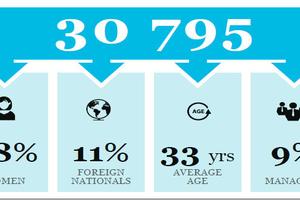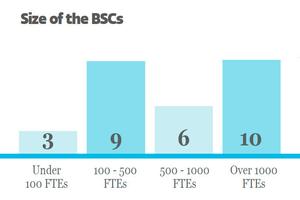What is a business service centre?
Business service centre (BSC), or shared service centre: an organisational unit responsible for the execution of specific tasks (for example finance & accounting, IT support, HR) supporting the core activity of the company
Business process outsourcing (BPO): involves contracting of the operations and responsibilities of specific business processes to a third-party service provider.
Source: Business Service Center Forum 2017 Survey
Business service centres began to mushroom in Slovakia, a country now dubbed an automotive super power, almost 20 years ago. They have often arrived silently on the heels of manufacturing companies, introducing more sophisticated jobs while improving the local labour force. Now, this sector is one of the main pillars and driving forces of the country’s economy with prospects for further growth.
But to maintain the momentum, business service centres need to find answers to the challenges of the local labour market while preserving the best talents.
“The business service sector has become the third largest employer in Slovakia, after the automotive and electrotechnical industry,” said Economy Minister Peter Žiga.
Based on the statistics of the Economy Ministry, there were 63 business service centres (BSCs) located across the country as of November 2017, employing almost 36,000 people while offering an average monthly wage of €1,730. This is significantly above the country’s average which was €925 for the first three quarters of 2017.
Low wages and low operating costs first drew BSCs to Slovakia. Today, BSCs in Slovakia believe their qualifications and natural expertise, along with the flexibility of the local labour force, are advantageous and provide a competitive edge.
“Certainly, one of the reasons why we’ve been so successful here in Slovakia is that we’ve found people who help us reinvent the way we do things,” said Paul Burt, managing director of the IBM International Services Centres in Bratislava. “They help ensure we do things in the most efficient and cost-productive way.”
Impact on the labour market
“With the arrival of BSCs, the labour market in Slovakia has changed significantly,” Anna Schwarczová of the HR company CPL Jobs told The Slovak Spectator.
BSCs have created thousands of new positions while increasing the demand for candidates with language skills. They have also eased university graduates entering the labour market and introduced the corporate culture of their mother companies here.



 Bratislava (source: SME)
Bratislava (source: SME)


